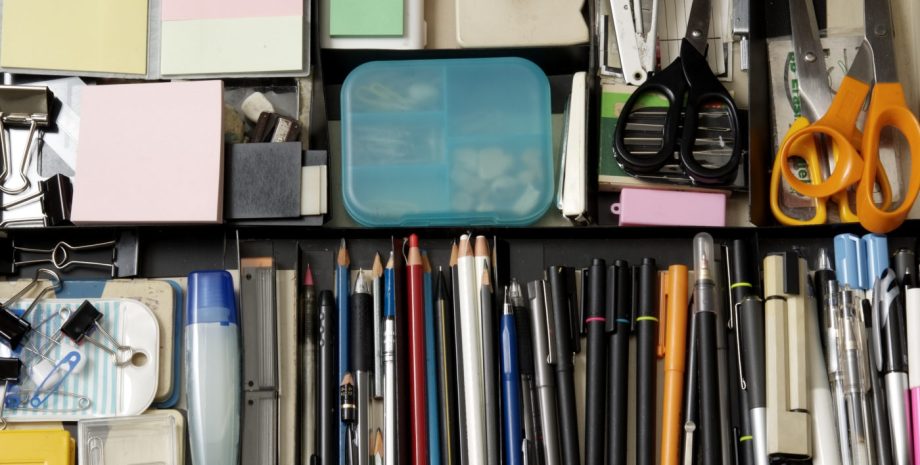

To make it as easy and painless as possible, decluttering experts recommend taking an organized approach to the process. They suggest using four boxes (literally or figuratively) to assess every object in the space that you’re clearing out: keep, trash, donate, or relocate. Understanding the scope of your options can help to make your decluttering decisions easier and quicker.
To declutter effectively without losing your mind in the process, take these hints to heart:
-
Don’t get in over your head.
Even if the clutter is literally up to your head, you can only do what you can do. Be honest about the scope of the home, room, or area you’re decluttering, and how much time and energy you have to tackle the job. If it’s too much, break it down further into smaller parts.
-
Set aside the right time.
Doing a declutter before you have company coming can be a great motivator, but it can also create a huge amount of stress. If that doesn’t work for you, set aside an amount of time you’re comfortable with, at a moment that’s convenient. For some, devoting a day may be satisfying. For others, an hour at a time may be the max. Be honest with yourself.
-
Get everyone involved.
One big drag on your decluttering efforts? Deciding how to deal with other people’s things. The easiest solution: Don’t. Put everyone in the house to work and make them decide the fate of their own things.
-
Complete each phase.
Whatever the size of your task, and no matter how you break it down, make sure to complete each bit once you start. This means taking trash to the trash, and donations to the donation recipients. Piles set for future trash or donation tend to become just another form of clutter.
-
Don’t get distracted.
Your job is to declutter. Not to redecorate or reminisce or even reorganize (though once you declutter, your eventual reorganization will be easier). Stay on the path.
-
Make a plan for upkeep.
The job doesn’t end once you’ve decluttered an area. It just gets easier. The reason clutter happens in the first place is because we don’t always take the time to deal with our things. Make a plan, or maybe even take a pledge, to deal with objects and decisions as they come into your life and home. And be in tune to those small delaying actions (putting mail on a kitchen counter or coffee table is a big one) that tend to add up.
Once you’ve got the physical mess in hand, you might want to consider applying some of these same techniques to your mental and emotional clutter, too. You’ll be surprised how much the same factors can apply!